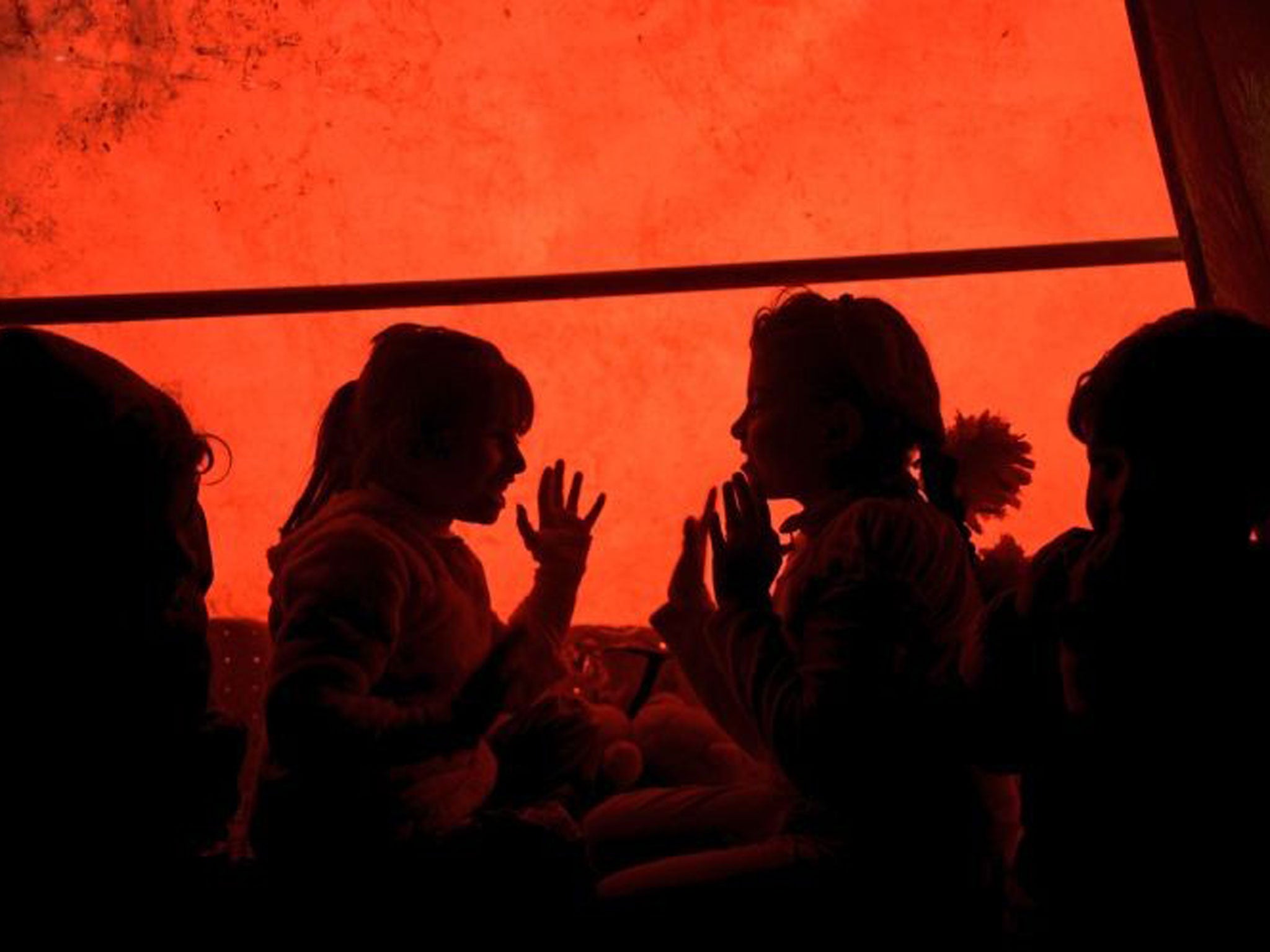Easy prey: The sexual exploitation of Syria's female refugees
Girls whose families have lost everything are being 'married' and dumped by wealthy Saudis

Nawar is a shy 17-year-old with very pale skin, just like her sister Souza, who is 16. Four months ago, both were married off to much older Saudi Arabian men. But after 20 days, the men disappeared.
Their parents were paid a dowry of 5,000 Jordanian dinar (£4,200) for the two girls. Their father was asked at a local mosque whether he had any daughters. The matchmaker, a fellow Syrian, then proposed that they marry two Saudi friends. Nawar's husband was 55, Souza's 45.
The men promised to relocate the entire family to Saudi Arabia. But now the family live in a single mouldy room in Amman, their dreams dashed. Luckily neither of the girls is pregnant.
"There's just regret, regret about what happened," says Nawar.
After 20 days in a furnished apartment, the sisters had been sent home to their parents. Their husbands would return to Saudi Arabia to settle the paperwork and return shortly, they were told. But the girls have not heard from them since, and their Jordanian mobile phone lines have stopped working. The marriages are not legal under Jordanian law; they were performed by a local sheikh and with two witnesses, but were not registered at the court.
Nawar says she had no idea her husband would disappear. During their brief union he told her about the rosy future they would have in Saudi Arabia. "He took me to nice restaurants, he took me on trips and he promised to take me to even nicer places in Saudi Arabia," she says. She married the older man out of a sense of duty to her parents; they were in a difficult situation. "I didn't love him," she says.
Described as an "economic coping strategy" for refugees fleeing Syria's civil war, such early or forced marriages are on the rise. Syrian women are famed for their beauty and intelligence, making them desirable as wives, says Dr Amira Mohamed, a counter-trafficking officer at the International Organisation for Migration (IOM) in Amman.
"We hear lots of stories about brokers who take girls from the Syrian community and do matchmaking for marriage, for local men and men from abroad. And the marriage will be very short term, it could only last 24 hours, just to give a legal cover for sexual exploitation," she says.
Early marriages are a tradition in Syria. A United Nations study found that almost half of Syrian refugees consider it normal for girls to marry between the ages of 15 and 17.
For many of the refugees, most of whom come from rural areas, this is attitude is part of their tradition, says Dr Mohamed. "But from a human rights point of view it's a violation." The IOM has started an awareness campaign to teach people about human trafficking, including sexual exploitation.
The scale of the problem is unclear as official numbers are not available, but at least one new case is reported daily via a 24-hour hotline. Most of the unions are prompted by economic necessity. Many of the refugees have lost everything. Nawar's family arrived in Jordan with a debt of almost £3,000.
"We were in a very bad situation and had very little money. Then this offer [of marriage] showed up," says her mother. "I wanted to pay our debts and have a life like we had before in Syria." They were also hoping that marriage would offer the girls protection, both financially and physically. Instead, the marriages have been kept a secret, and the girls have been forbidden to tell any of their friends back home in Syria.
Their father, Abu Bashar, hopes that his daughters will be able to remarry to "nice respectable men". He will never marry them off to a Saudi Arabian again. "Not even for 10,000 dinar," he adds.
The sexual exploitation of women in such circumstances is not new. "Refugees find themselves in a situation where they sell whatever they have. For a woman it is typical either to work in a domestic situation or to do sex work," says Dr Mohammed.
In one of the capital's nightclubs, the stage is filled with 20 women in tight-fitting, bejewelled evening gowns. "All of them are Syrian," says the waiter, gesturing towards the dancing throng. During the evening, the women chat to the male clientele, and make arrangements for meetings later.
A thick layer of make-up fails to mask the girls' age – at least four look well under 18. When asked, they all provide the same story, saying they are of age and started working at the club four months ago through a friend. "No, of course I didn't used to do this in Syria," says Bouchra, a chubby girl from Damascus in a powder-blue gown. She is still clearly adjusting to her new life, glancing around nervously at the men. "I ended up in this situation because of the crisis," she says.
The names in this story have been changed
Join our commenting forum
Join thought-provoking conversations, follow other Independent readers and see their replies
Comments
Bookmark popover
Removed from bookmarks